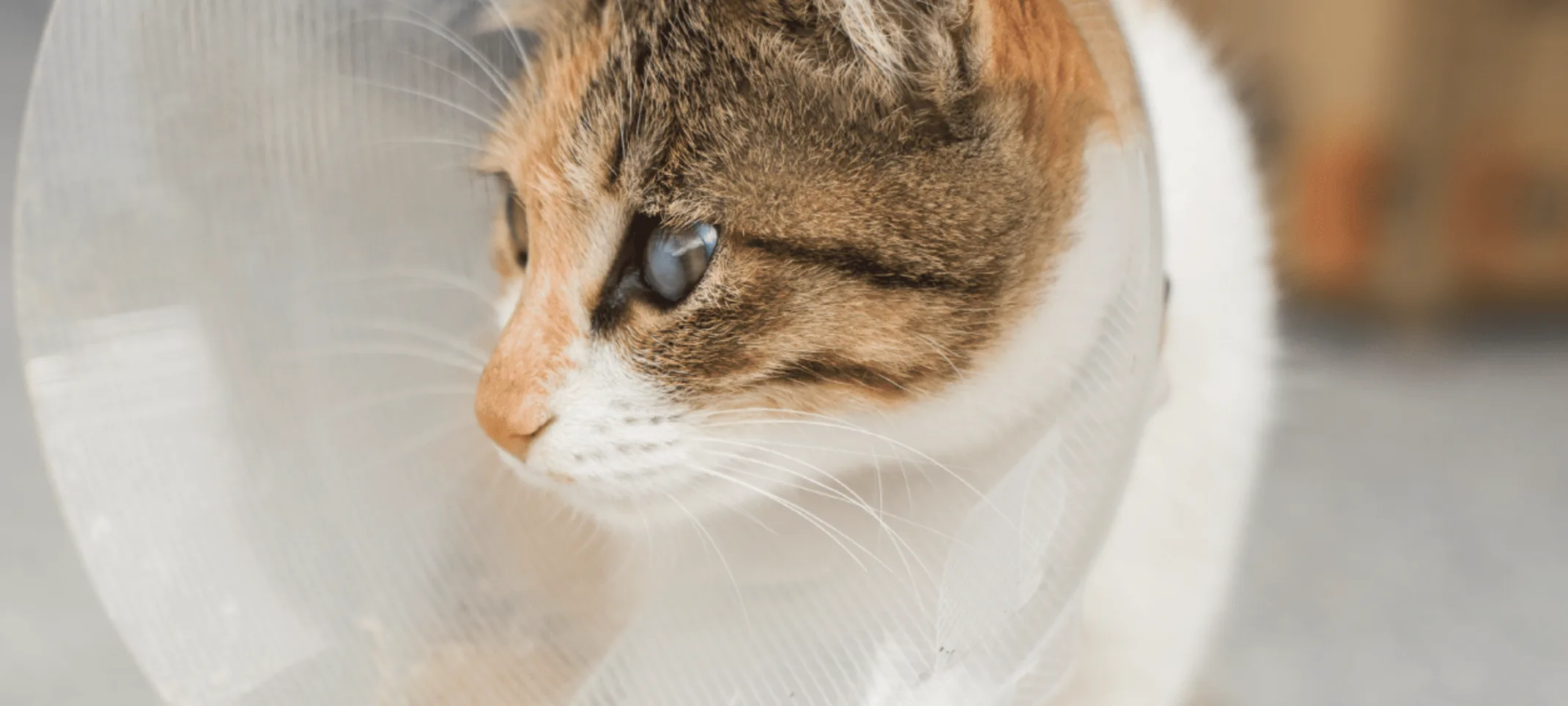Old Derby Animal Hospital
Spay & Neuter
Spaying or neutering your pet can help them live a longer, healthier life, minimize behavior problems, and help control the population of unwanted dogs and cats.

Why We Spay and Neuter Dogs and Cats in Hingham, MA
Preventing animal shelter overcrowding and pet overpopulation remains a serious and relevant issue in our community. While the number of dogs and cats that are humanely euthanized each year in shelters has decreased, there is still a lot of work to do.
At Old Derby Animal Hospital, we spay and neuter dogs and cats not only to decrease overpopulation and euthanasias here in Hingham, MA but to improve their health, too.
Have you scheduled your pet's spay/neuter yet?
Overview
According to the American Veterinary Medical Association, nearly 12,500 puppies are born in the United States each hour. Spaying females or castrating males eliminates unwanted litters, which contribute to thousands of euthanasia procedures and millions of stray animals. Additionally, these procedures can minimize behavior problems and help your pet live a longer, healthier life by reducing the likelihood of certain cancers and tumors.
When should I have my pet spayed or neutered?
In general, we recommend spaying or castrating small dogs and cats between 4-6 months of age. With large breed dogs, we often recommend delaying the surgery until they are 6-12 months of age.
Why should I have my pet spayed or neutered?
There are many benefits that come with spaying your female companion animal. They include helping to control the stray dog and cat population, eliminating the sometimes 'messy' heat cycles that attract male dogs, and preventing diseases in your pet such as pyometra (infection in the uterus) and mammary cancer. Additionally, research has shown that spayed pets live longer than pets that have not been spayed.
There are also many benefits that come with castrating your male companion animal. These benefits include helping to control the stray dog and cat population, eliminating undesirable and embarrassing behavior, and preventing diseases in your pet such as prostate disease and testicular cancer.
How is a spay or neutering surgery performed?
Spaying, also called an "ovariohysterectomy," is a surgical procedure in which both ovaries and uterus are completely removed from your female pet while they are under general anesthesia. Castrating refers to the surgical procedure in which both testicles are removed while your male pet is under general anesthesia.
Before the operation, we will assess your pet to minimize risk. While your pet is under anesthesia we take individual care for the safety of each pet. Our certified technicians and doctors are trained in advanced monitoring to ensure your pet's comfort.
Your pet’s safety and comfort are our primary concerns when performing a spay or castration. We routinely use a IV catheter and fluids on canine spays and castrations, as well as feline spays. This is important for maintaining blood pressure and perfusion to the kidneys and other organs as well as allowing immediate IV access in the event of an emergency.
We use advanced pain management techniques in conjunction with anesthesia to make sure your pet is as comfortable as possible during the procedure and after they are discharged. Our spay and castration patients receive 2 or 3 different injectable pain medications during the procedure and usually go home with oral pain medication. We also perform local anesthetic blocks at the surgical site. Proper pain management makes the procedure as comfortable as possible and allows for faster recovery.
How Spaying and Neutering are Beneficial to Pets
When it comes to spaying and neutering, you may want to know: What’s in it for my pet? Research has found that spayed and neutered dogs and cats may in fact live longer lives as a result of their procedures.
Spaying Females
Prevents future heat cycles (which can be messy and frustrating for owners) and pregnancy altogether
Prevents uterine and ovarian cancers
Reduces the risk of mammary cancer
Reduces the risk of your dog/cat escaping and roaming in search of a mate (which could put them at risk of getting hit by a car or attacked by another dog/cat or wild animal)
Neutering Males
Can reduce aggression fueled by excessive testosterone production
Prevents testicular cancer and prostate cancer
Reduces the potential for inappropriate behaviors such as urine marking and spraying, and mounting
Reduces the risk of your dog or cat escaping and roaming to search for a mate (which could put them at risk of getting struck by a car or attacked by another dog, cat, or wild animal)
Figuring Our When to Spay/Neuter Your Pet
While it is important to have your pet spayed or neutered sooner rather than later, some breeds need more time before they can undergo surgery. This is especially true for large dog breeds--they need to reach skeletal maturity and develop their hormones properly first. Failure to wait can have long-term consequences for their health.
Together, you and your veterinarian can decide on the best time to spay or neuter your pet. To get in touch, simply call (781) 749-2800!
